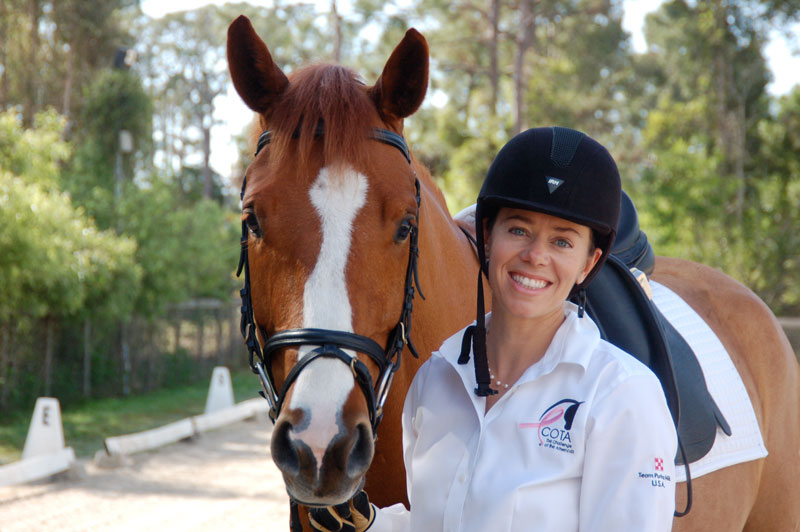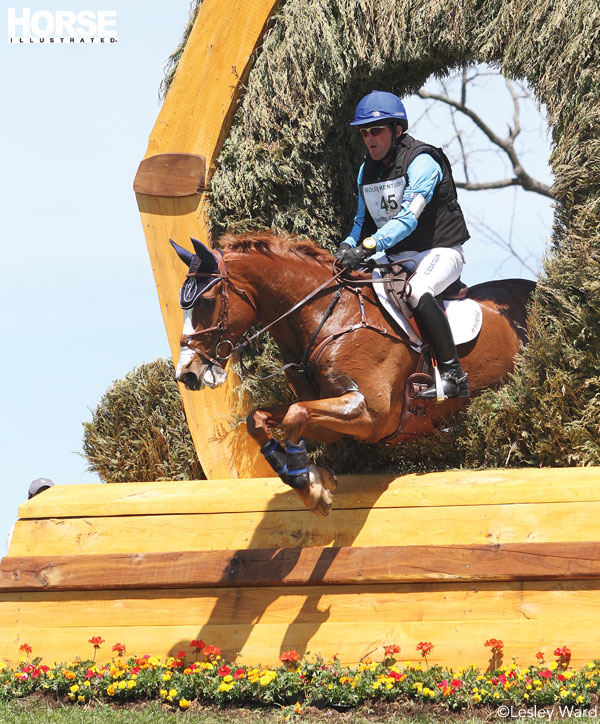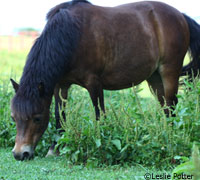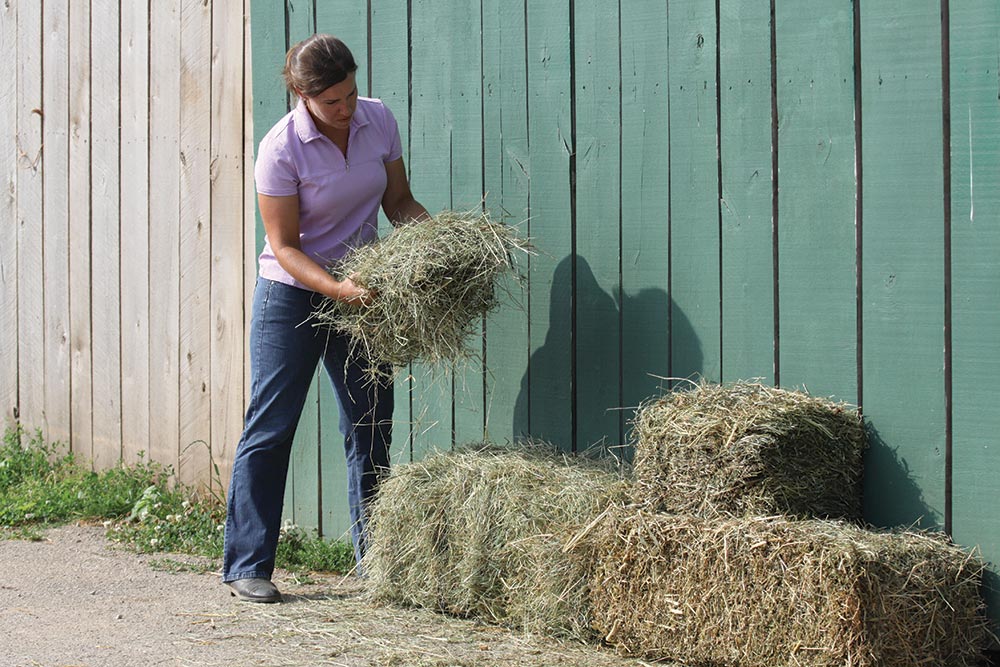Yum – there’s nothing better than a steaming bowl of comfort food when it’s cold out, right? At times over the years of owning a horse, when the temperature plummets in the winter, I think about a nice warm bran mash for my horse. What could be better – extra hydration, applesauce for flavor and lovely bran to keep things moving in the digestive department?
But I stopped my bran mash regimen long ago when I began, for no particular reason, to doubt the benefits of a sudden change of food for my horse in winter. I worried that it actually might be bad for him. But I have missed that merry mix of a mash and so has my horse.

Mary Beth Gordon, PhD, is director of research and new product development for Purina Mills’ horse feed division and dressage enthusiast. She has published papers in numerous scientific journals including The Veterinary Journal, Journal of Animal Science and Equine Comparative Exercise Physiology. She and her horses live in Duchess County, New York. Here, she is getting ready for a lesson in south Florida.
A few years ago I interviewed a horse nutritionist from Purina Animal Nutrition, Dr. Mary Beth Gordon, for a story I was working on about obesity in horses. So I reached out to Mary Beth recently and asked her if she’d share her thoughts on the merits – or lack thereof – of the delicious winter bran mash. I wondered – would she give it the thumbs up, or thumbs down? Here’s what she had to say:
Kitson: In your opinion is it a good idea to feed a bran mash when the weather turns very cold in the winter?
Mary Beth Gordon, PhD: I am not a fan of bran mashes that are fed to horses when the weather turns suddenly cold. Foremost, people feed bran mashes because they think they will have some type of laxative effect and/or prevent colic/keep things moving. Studies done by Harold (Skip) Hintz at Cornell University demonstrated that wheat bran did not have a laxative effect and did not increase fecal water content.
I do recognize that horses are at risk for digestive upset during sudden weather changes, so from a nutrition standpoint, I like to keep things as consistent as possible (not suddenly change their concentrate portion of the ration with a bran mash) and I also make sure the horse is drinking well.
On the drinking front, it is very important horses are receiving enough supplemental salt in the diet and that fresh water is available at a temperature that encourages the horse to drink. Extra salt can be fed to encourage drinking in horses and increase water intake, but make sure the fresh water is freely available.
People like to use bran mashes to get extra water into the horse, but I would rather they wet the horse’s usual feed or use a product like Hydration Hay that was designed to do just that.
The one instance where I recommend bran mashes is for horses that are inappetant and it is the only thing you can get them to eat. For example, a horse coming out of surgery that is ready to eat small amounts of feed, but is not finding other feedstuffs palatable. In these cases, you can feed these horses bran mashes for a few days to get them eating again and then transition them to a more balanced feeding program. The recipe for this is whatever the horse is finding palatable- many horses like the bran mixed with warm water, molasses, apples, etc.
K: What about bran mash for pasture-boarded horses who don’t otherwise get grain?
MB: Due to the inverse Ca:P [calcium:phosphorus] ratio inherent in bran, it is not recommended to be fed as a regular part of any feed ration unless the Ca:P ratio is corrected. Also, it does not provide a full spectrum of vitamins and minerals to balance out pasture and therefore is not the best choice. These horses would be better off to receive a ration balancer pellet and not a bran mash.
Horses that receive bran with an inverse Ca:P ratio over a longer period of time can develop nutritional secondary hyperparathyroidism (big head disease) with a characteristic swollen head.
K: Any other tips related to cold-weather horse nutrition?
MB: Keep things as consistent as possible. Keep water from freezing. Make sure the horse is getting supplemental salt at proper amounts (most horses won’t lick enough from a salt block and it may be snow covered), the best is to add it to the feed daily in supplement form. Feed extra hay (the type the horse is used to) on extra cold days/nights for hindgut fermentation and added calories to offset those burned to keep warm. If the horse continues to lose weight in cold weather, add a balanced fat supplement for added calories.
In the end, bran mashes are not evil unless they are abused and used too frequently by horse owners. A bran mash once in a while utilized specifically as a special treat is a palatable way to get some extra water into the horse and should do any harm. But it shouldn’t be provided on a regular basis and it won’t prevent colic or other digestive disturbance.
Back to Over the Fence





